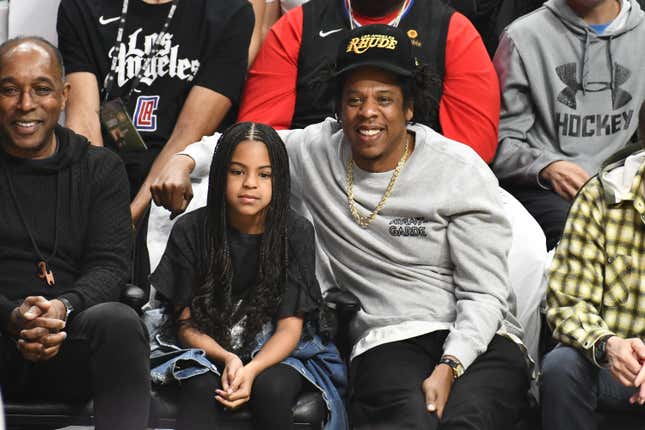Leave Blue Ivy Carter’s Hair Alone
The 10-year-old daughter of Jay-Z and Beyonce has been a subject of physical scrutiny since her birth. That's a lot of pressure on a kid!
Entertainment

Let’s get this out of the way: Blue Ivy Carter is the daughter of two music legends, Beyoncé and Jay-Z, and it’s inevitable and understandable that people are going to be fascinated by her. But from the moment she became visible to the public as a toddler, Blue Ivy’s natural hair has been the subject of national conversation—a constant pressure weighing down on a young Black child who did nothing to deserve the intense scrutiny.
There was the infamous petition on Change.org in 2014 (when Blue Ivy was just 2 years old!) titled “Comb Her Hair,” which acquired over 6,000 signatures publicly condemning Beyonce’s inability to groom her daughter’s hair to the public’s taste. The toddler’s hair became the subject of an entire Atlantic essay before she could even tie her shoes.
-

-

-

-

-

-

-

-

-

-

-

-

-

-

-

-

-

-

-

-

-

-

-

-

-

-

-

-

-

-

-

-

-

-

-

-

-

-

-

-








































